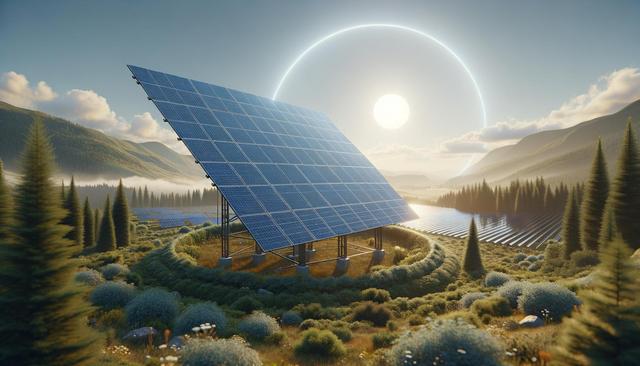Understanding the Basics of Solar Power Systems
Solar power systems have become an increasingly popular choice for homeowners looking to reduce their energy bills and environmental impact. These systems convert sun energy into usable electricity through photovoltaic (solar PV) technology. A typical residential solar setup includes solar panels, an inverter to convert the electricity into a usable form, and sometimes a battery for energy storage. As more households become aware of the long-term savings and sustainability benefits, solar power energy adoption continues to grow steadily across different regions.
The core of any solar power system is the solar panel. These panels harness sunlight and generate direct current (DC) electricity, which is then converted into alternating current (AC) by the inverter. This process allows homes to use solar power energy just like power from the grid. Additionally, smart monitoring systems help users track energy production and consumption, offering valuable insights into their energy habits.
Why Homeowners Are Making the Switch
There are several compelling reasons why homeowners are increasingly choosing to install solar PV systems. One of the primary motivations is the potential for long-term cost savings. While the initial investment can be significant, the reduction in monthly electricity bills often offsets the upfront costs over time. In many cases, government incentives and tax rebates are available, making the transition to solar more financially accessible.
Some key reasons homeowners are opting for solar include:
- Lower utility bills over the system’s lifespan
- Increased property value due to energy-efficient upgrades
- Reduced carbon footprint and environmental impact
- Greater energy independence and resilience
As solar panel technology improves and becomes more affordable, the return on investment continues to increase, making solar a practical choice for many households.
Evaluating the Financial Impact
Before committing to solar power systems, it’s important to evaluate the financial implications. Various factors influence the overall cost and return, including the size of the system, local energy rates, the amount of sunlight in your area, and available incentives. Homeowners should consider getting a professional assessment to understand how much sun energy their home can harness and how that translates into savings.
Some financial considerations include:
- Initial installation and equipment costs
- Potential savings on electricity bills
- Available government incentives and rebates
- Maintenance and potential repair costs
While solar PV systems generally require little maintenance, it’s wise to factor in occasional servicing or updates to the inverter or monitoring system. When calculated over the system’s lifetime, many homeowners find the financial benefits of solar to be substantial.
Environmental Benefits of Solar Panels
Switching to solar power energy is not just a financial decision but also an environmentally responsible one. Solar panels help reduce reliance on fossil fuels, which in turn lowers greenhouse gas emissions. For homeowners concerned about their carbon footprint, solar offers a tangible way to contribute to climate-friendly living.
Key environmental benefits include:
- Reduction in CO2 and other harmful emissions
- Less water usage compared to traditional power generation
- Support for a cleaner, renewable energy grid
- Decreased air and water pollution
By producing clean energy on-site, households can actively participate in the global shift toward sustainable living. Even small systems can make a noticeable difference over time, especially when adopted widely across communities.
Choosing the Right Solar Setup for Your Home
Not all solar systems are the same, and choosing the right setup depends on several factors unique to your home. The size of your roof, its orientation, and the amount of daily sunlight exposure all play crucial roles in determining system performance. It’s also important to decide whether you want a grid-tied system, which connects to the local utility grid, or an off-grid system with battery storage for full energy independence.
When selecting a solar power system, consider:
- Energy needs and usage patterns
- Roof space and structural integrity
- Local weather and sun exposure
- Budget and financing options
Professional installers can help tailor a system to meet your specific requirements, ensuring maximum efficiency and value. Additionally, many homeowners benefit from solar consultations that include site assessments and system performance simulations.
Conclusion: Is Solar Worth It for You?
For many homeowners, the decision to switch to solar power energy is driven by a mix of financial benefits and environmental values. While the upfront cost may seem daunting, the long-term savings, increased property value, and contribution to a cleaner planet often outweigh the initial investment. With evolving technology, greater accessibility, and supportive policies, solar panels are becoming a practical and rewarding option for residential energy use.
Evaluating your home’s sun energy potential, understanding your energy consumption, and exploring local incentives can help you make an informed decision. Whether you’re motivated by cutting costs or reducing your environmental impact, solar PV systems offer a reliable and sustainable solution that continues to grow in popularity among homeowners across the country.




Leave a Reply